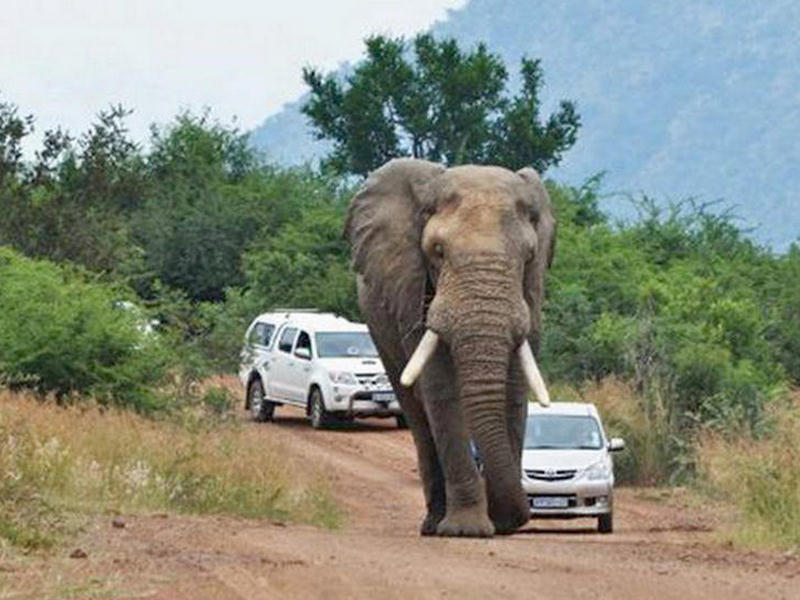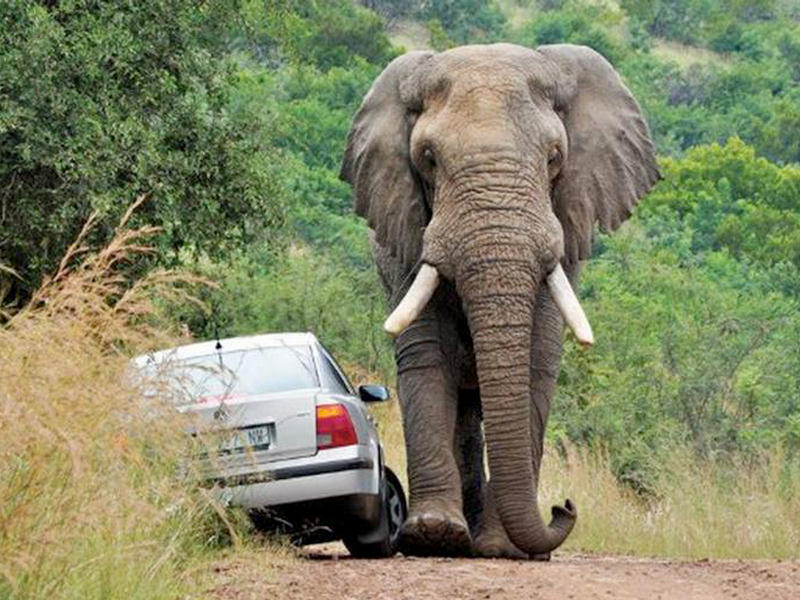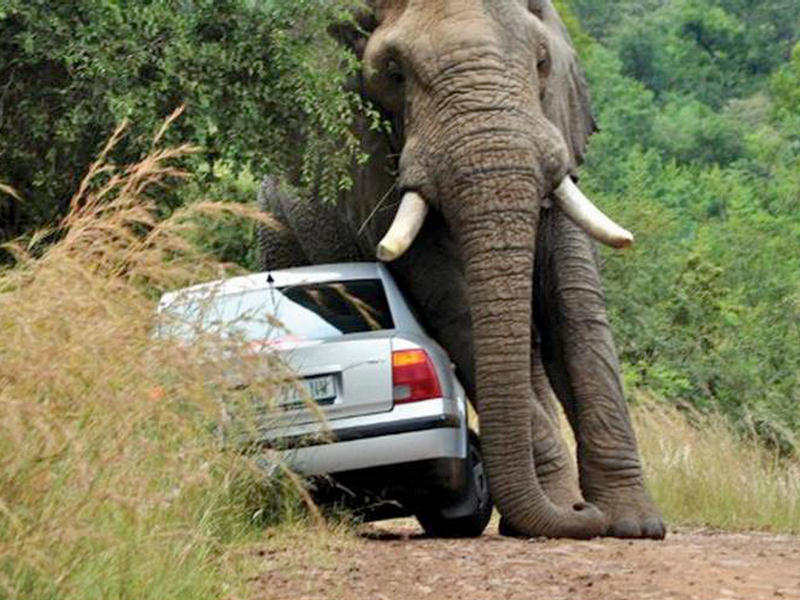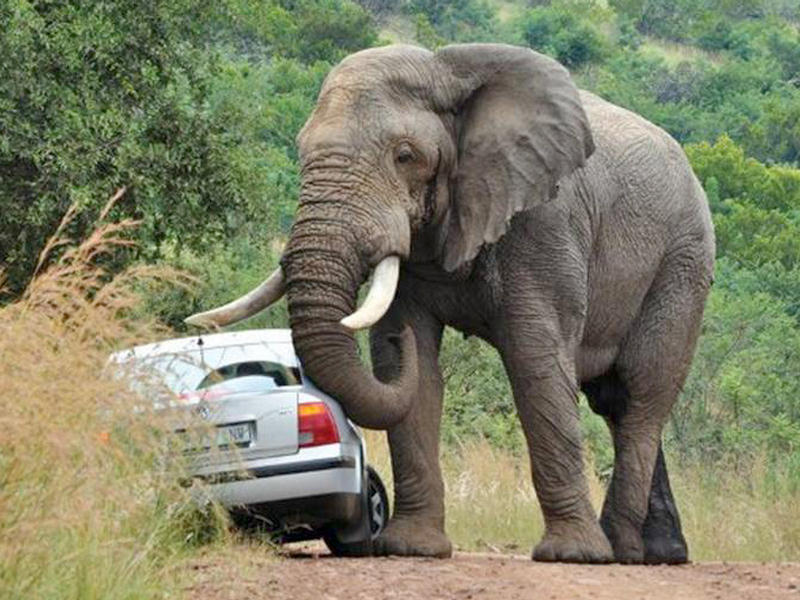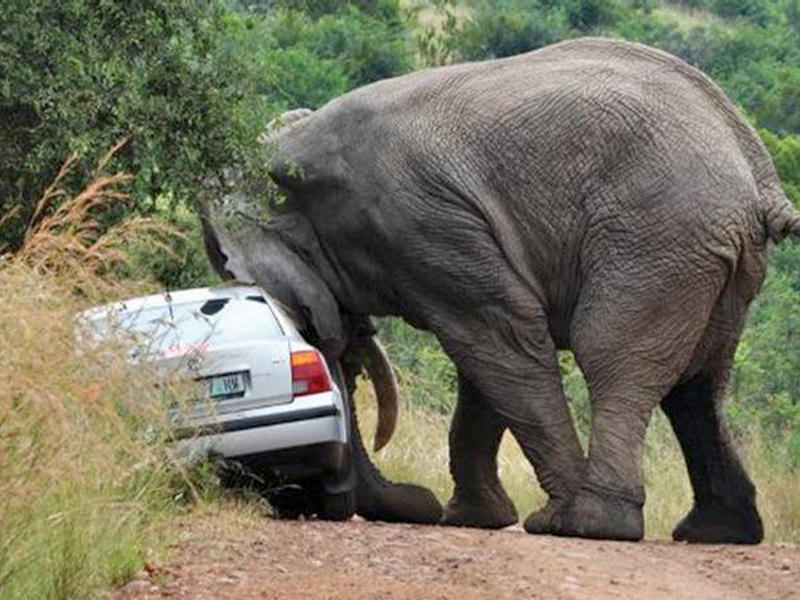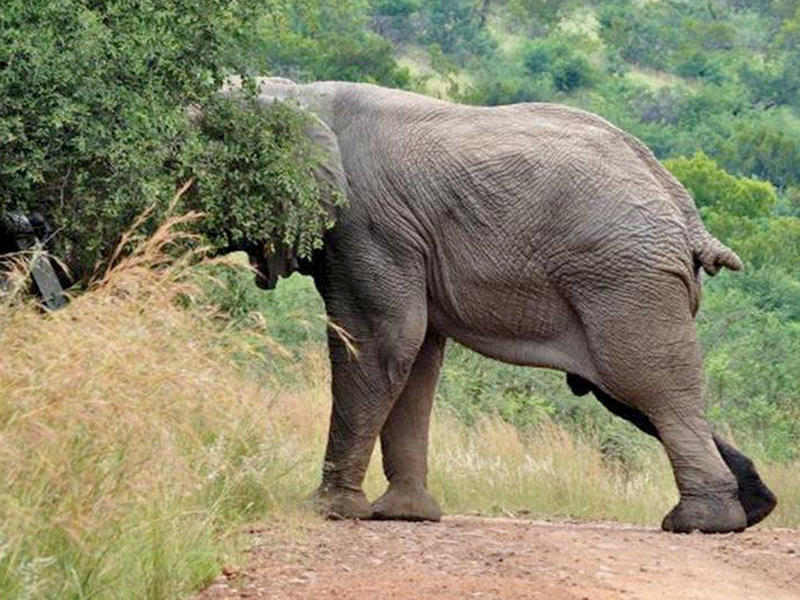
A Lesson for the Human Species? The Wisdom of Elephants
Experiments conducted by University of Sussex behavioral ecologists Dr. Karen McComb and Dr. Graeme Shannon found that the older and more experienced the matriarch, the more attuned she was to potential danger to the group, and the better able to distinguish between higher and lower levels of threat posed by predators.
The research team used novel experiments to determine how good elephants were at making crucial decisions about predators --- playing back recorded lion roars to family groups (related females and young led by the matriarch) and monitoring their reactions.
While elephants are relatively impregnable to most predators due to their size and aggressive group defence, male lions present a very real threat. A male lion is more than capable of bringing down and killing a young elephant even when hunting alone, whereas female lions generally only succeed when hunting in large groups.
The team found that the oldest matriarchs (in particular the 60 plus age class) were more likely to engage in prolonged periods of listening and greater defensive behavior when exposed to male lion roars (as opposed to female roars), which resulted in more intense bunching behavior among the family group (where adult elephants bunch together to protect young calves) and mobbing approaches, where the elephants actively move towards the source of the roars, sometimes even mounting an aggressive charge.
The researchers conclude that this ability to discern subtle threat levels from differences in acoustic cues is accrued over time and through the experience of the matriarchs of previous encounters.
The study provides the first direct evidence that individuals within a social group may benefit from the influence of an older leader because of their enhanced ability to make crucial decisions about predators - a key element of ecological knowledge.
Dr. McComb has previously identified how elephant matriarchs build a "social memory" of friendly faces or foes over a long lifetime - vital to operating successfully in complex social networks.
This latest research on identifying potential predators adds to our understanding of an older leader's pivotal role in elephant society, even after their reproductive capabilities have ended.
It highlights the vital importance of the oldest individuals in natural populations of elephants and other mammals with long lifespans and advanced cognitive abilities such as whales and primates.
The Daily Galaxy via University of Sussex
******************
"ROAD RAGE"
We think there might be an ancient message to the human species from the example set by the wild
African ELEPHANTS of AMBOSELI NATIONAL PARK in Kenya which shows how ELEPHANT groups are guided by the wisdom of a female leader or matriarch, accrued through a long lifetime of experience.
Experiments found that the older and more experienced the matriarch, the more attuned she was to potential danger to the group, and the better able to distinguish between higher and lower levels of threat posed by predators. The research team used novel experiments to determine how good ELEPHANTS were at making crucial decisions about predators -- playing back recorded lion roars to family groups (related females and young led by the matriarch) and monitoring their reactions.
